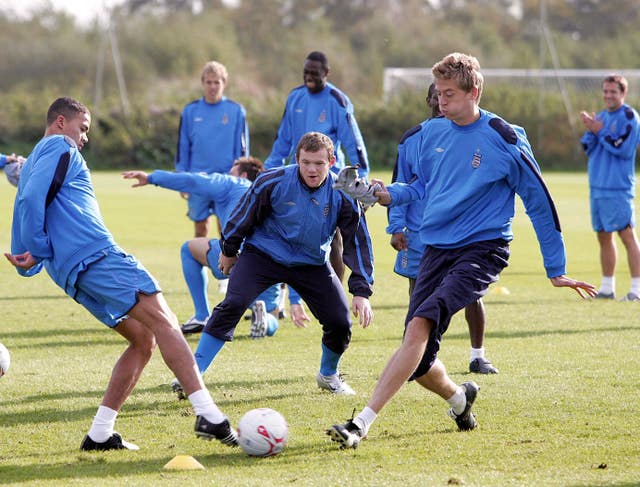Jermaine Jenas reveals struggle with ‘imposter syndrome’ during England career
Imposter syndrome can be defined as persistent feelings of inadequacy despite evident success.

Former England midfielder Jermaine Jenas has revealed he battled with ‘imposter syndrome’ during his international career due to perceived preferential treatment of star players.
Jenas won 21 caps for his country and was included in Sven-Goran Eriksson’s 2006 World Cup squad but was never a regular starter.
Imposter syndrome can be defined as a collection of feelings of inadequacy which persist despite evident success.

“I had a couple of moments struggling with imposter syndrome throughout my career as a player,” said Jenas, speaking on episode two of the British Army podcast ‘The Locker’ which will be released on Monday, August 17.
“It was playing for England and it was nothing to do with my ability or my deserving of the position I was in.
“It was more to do with your surroundings. It’s a bit like the ‘England Boys’ Club’. They’re part of the England Boys’ Club and you’re there but you’re not quite there, if you know what I mean?
“And no matter how well I was playing, how well I was training – there was myself, Michael Carrick, Owen Hargreaves – we were just on the fringes.
“We just couldn’t seem to break through because the manager was set in his ways of, ‘They’re world-class players, they start and that’s it’.
“So you would kind of turn up to England and be like, ‘I’m not going to get a game here and I don’t really feel part of it’.”

The 37-year-old believes the current England set-up is better placed to deal with the issues he faced because manager Gareth Southgate had similar experiences.
“The best thing right now is we’ve got a manager for England who basically was a player who was on the fringes,” Jenas said of Southgate, who won 57 caps.
“He wasn’t a Beckham, a Gerrard, he was a player that came in every now and again when somebody wasn’t fully fit.

Jenas retired in 2014 and has moved into punditry, including working on Match of the Day.
He admits to “shaking like mad” during his first appearance on the highlights programme but has since been able to control his nerves.
“It was a big moment because I came through it and I thought I was a mess in terms of what you could see,” he said.
“I sat down in the seat and and I just fell apart. I couldn’t stop moving my feet, I couldn’t stop moving my hands. I was fidgeting and my heart was going crazy.”
Asked for advice on dealing with imposter syndrome, he replied: “Talking about it is probably my number one thing, actually admitting to yourself that you have this issue that you don’t feel like you belong.”
:: The Locker can be found on all major podcast directories. Visit https://apply.army.mod.uk/thelocker for more details.





